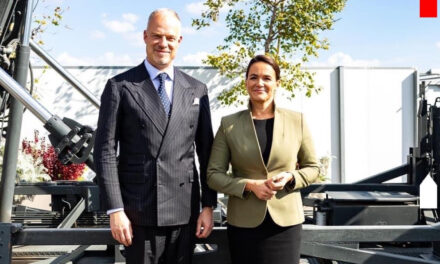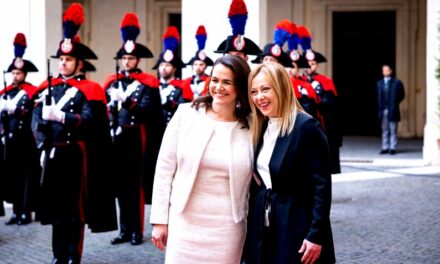Portals critical of the government receive money from abroad in an opaque manner.
The foreign funding of media critical of the government is opaque and increasing, concluded the Nézőpont Intézet Press Freedom 2024 . The institute made three main findings:
• It is impossible to fully discover the amount and place of origin of the funds coming from abroad to the media operating in Hungary. It can be assumed that media critical of the government receive annual revenues of billions from outside Hungary.
• The range of foreign donors is wide, including foreign governments (mainly the United States), international organizations (European Union), foundations and funds with an international scope. These actors often remain hidden through chain financing (umbrella organizations).
• In today's war conditions, it can also pose a (national) security risk if foreign actors, e.g. they are trying to put pressure on the government (and public opinion) of Hungary through media critical of the government.
According to the Nézőpont Institute, it is practically impossible to detect the entire range of sources coming from outside Hungary to the various media – in the absence of relevant and effective regulation. On the one hand, the donor side is excessively diverse, and on the other hand, the receiving media, even if their circle can still be identified with the tool of content analysis, are on the one hand not obliged, and on the other hand, not interested in revealing to the public that they accept grants or even commissions from abroad.
In the public annual reports of individual publishers (be they companies, foundations or associations), these revenues are listed under the headings "other income" or "subsidy", but their details are optional, so it is not even possible to find out whether the funds came from home or abroad. Despite this, even on the basis of the often opaque annual reports, it can be stated with certainty that foreign donations in the order of billions are received on an annual basis by specifically government-critical media outlets, wrote the Nézőpont Institute. Money comes from many places
The analysis pointed out that several types of patterns can be observed in relation to subsidies from abroad. On the one hand, foreign governments and their embassies in Hungary provide Hungarian media outlets with foreign public funds.
The United States of America is at the forefront of this, whose embassy in Budapest provided a total of HUF 146,034,780 in two rounds of support to a total of 20 applicants through its "Free Media" tender.
Facebook communists gathered to splurge a bit about Trump's shooting
In addition to the embassy, the Bureau of Democracy, Human Rights, and Labor Affairs under the United States Ministry of Foreign Affairs also appears as a direct donor, which supported the operation of the Telex Academy with 740,740 dollars (nearly HUF 300 million). The United States also finances sbatteuropa.hu, which operates as part of the US Agency for Global Media subsidized by the United States Congress and - according to the congressional report - more than one and a half million dollars in 2023 alone (approx. 560 million HUF) were spent on it.
But it is also possible to find an example where the embassy of an EU member state similarly financed appearances, Nezőpont added.
International organizations and other donors can also be identified as foreign financiers.
The European Union became particularly active in the field of media financing after the Open Society Foundations founded by György Soros announced that "since the institutions and governments of the European Union spend a lot on the topics that OSF also deals with", they will largely cease their activities in the Union.
According to the data of the European Commission, Hungarian media critical of the government (HVG33, Magyar Jeti Zrt.343536, nyugat.hu37, atlatszo.hu38, even MÚOSZ39) received at least 1 million euros (966,601 euros, almost 400 million forints) through various projects ). The EU's media funding does not seem to be slowing down, since the total value of the projects announced and already running for media active in the news field alone is nearly 200 million euros (approx. 75 billion forints).
In addition to the European Union, numerous foundations, funds, initiatives, and international cooperation also participate in the financing of media critical of the Hungarian government. They include, for example: the Sigrid Rausing Trust, the Google News Initiative, the Foundation for Democracy and Pluralism, the National Endowment for Democracy, or the Heinrich-Böll-Stiftung.
Finally, a hidden form of foreign financing that is also difficult to detect is chain financing. There are many networks and umbrella organizations in the international space, to which media outlets and editorial offices operating in Hungary have joined, or are active in Hungary in some form. These organizations, like the ones above, provide direct financial resources to the Hungarian government-critical platforms, or provide them with support in kind (events, trainings, scholarships, etc.). However, almost all such organizations have in common that they are supported by the same large donors belonging to the same political and cultural circle
Such intermediary organizations include Internews, which previously supported Direkt36, the Global Investigative Journalism Network, the Organized Crime and Corruption Reporting Project, the Free Press Unlimited or Civitates foundation. According to the Nézőpont Institute, the institutions behind the latter two organizations can practically be considered directly part of the Soros empire.
As the above shows, the foreign funding of Hungarian media is - intentionally or not - carried out through opaque channels, so in addition to its mechanisms, its extent is also undetectable.
On the other hand, the searchable data lead to the conclusion that every year at least 1 billion forints from abroad support the activities of media critical of the domestic government.
Featured Image: Pixabay













